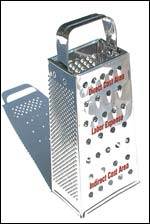Tax-Free Retirement Income with the Roths
Under this year’s new tax rules it’s possible to have a Roth 401(k) in addition to a Roth IRA for Tax Free Retirement Income.
Share
Unique to the Roth retirement accounts—Roth 401(k) and Roth IRA—participants save part of their salary on an after-tax basis and the money in their Roth accounts can grow and remain tax-free. That’s right—the principal and accumulated earnings of a Roth account can be withdrawn tax-free, provided that certain qualifications are met.
In contrast, contributions to a traditional IRA, 401(k), etc., are on a pre-tax basis, but withdrawals of every dollar in the traditional accounts are taxed as ordinary income.
Only about one in three employers were expected to start Roth 401(k) plans in 2006, according to a Hewitt Associates survey. But the self-employed, independent contractors and other business owners with no employees can get a Roth 401(k) as a feature in their Self-Employed 401(k) right away.
Roth 401(k)s are like super-sized Roth IRAs. For example, in 2006, the Roth 401(k) salary deferral limit was $15,000 versus $4,000 for the Roth IRA, and the “catch up” for those 50 and older is $5,000 versus $1,000 for the Roth IRA. Loans can be taken from a Roth 401(k) account, but not from a Roth IRA.
And, unlike the Roth IRA high income earners are not restricted from having a Roth 401(k). For 2007 and beyond the Roth 401(k) contributions are slated to be adjusted for inflation.
Self-Employed 401k contributions can be split between the pre-tax account and the Roth after-tax account. However, the aggregate contributions must not exceed the elective deferral limit. Profit sharing or employer contributions on a pre-tax basis can be made to a Self-Employed 401(k).
The Roth 401(k) feature would probably appeal most to:
- Individuals who think that their tax rate may be higher when they are ready to retire.
- Long-term investors that have the potential to accumulate considerable compounded earnings in their account over time and never want to pay tax on their gains.
- Those concerned with passing some their retirement funds tax-free to their heirs.
- High income earners who do not qualify for the Roth IRA.
The Roth feature of the Self-Employed 401(k) is an important tool that allows the small business owner to tailor his investments to his individual retirement objectives. The Self-Employed 401K can be started by any business that employs only owners, or owners and their spouses, including C corp, S corp, partnerships, and even sole proprietors working from home.
Related Content
-
Transforming Moldmaking into Digital Industrial Manufacturing
Moldmaking and digitalization is at the core of this global industrial manufacturing company’s consolidation and diversification plan.
-
Mold Design Review: The Complete Checklist
Gerardo (Jerry) Miranda III, former global tooling manager for Oakley sunglasses, reshares his complete mold design checklist, an essential part of the product time and cost-to-market process.
-
Predictive Manufacturing Moves Mold Builder into Advanced Medical Component Manufacturing
From a hot rod hobby, medical molds and shop performance to technology extremes, key relationships and a growth strategy, it’s obvious details matter at Eden Tool.









.jpg;maxWidth=300;quality=90)

_300x250 1.png;maxWidth=300;quality=90)

